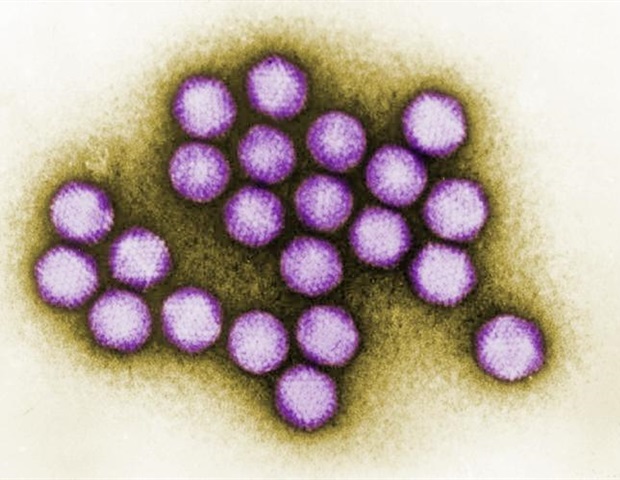
Third dose COVID-19 booster vaccines offer lasting protection after several months, according to the latest results of a nationwide trial.
The COV-BOOST study, which was supported by the National Institute of Health and Care Research (NIHR), was run across England and Wales and included 187 people in Oxford. It has provided data to underpin the UK's booster programs since 2021.
New analysis, published online in the Journal of Infection, provides data on immune responses eight months after third doses of several COVID-19 vaccines.
The insight could be important around the globe if longer-term protection becomes a higher priority when choosing vaccines for booster programs.
Researchers at the University Hospital Southampton and Oxford Vaccine Group (University of Oxford) found adenovirus-based vaccines (such as Janssen or Oxford-AstraZeneca) may lead to similar immune responses as mRNA vaccines (such as Moderna or Pfizer-BioNTech) at around seven months after the third dose of vaccine. They also report that lower doses of mRNA vaccines as boosters may offer similar protection compared with full doses.
Booster study
In December 2021, COV-BOOST provided the world's first data on the safety and immunogenicity of a third dose in mix and match schedules.
It compared immune response to seven vaccines 28 days after use as a third dose in people who had received two initial doses of either the AstraZeneca or Pfizer vaccines.
Last year, the study reported strong immune responses 84 days after third jabs in several approved COVID-19 vaccines.
A fourth dose sub-study also found that an mRNA vaccine is safe and boosts antibody levels - even higher than that of a third dose.
The NIHR Clinical Research Network supported these efforts to recruit 187 volunteers within Oxford to participate in the COV-BOOST study at the Oxford Vaccine Group at the Churchill Hospital.
Xinxue Liu, study lead statistician and co-investigator at Oxford Vaccine Group, said: "Our recent data on the COV-BOOST trial has shown that 'mix-and-match' COVID-19 vaccinations, especially when boosting with viral-vector vaccines, provided longer-lasting antibodies for up to eight months.
"While it's important to have high levels of antibodies during the pandemic to control the spread of the virus, we now probably need to focus on long-term protection for vulnerable individuals as we move beyond the pandemic."
Dr Angela Minassian, Senior Clinical Researcher and Honorary Consultant in Infectious Diseases at the Oxford Vaccine Group and principal investigator of the study in Oxford, said: "We are very grateful to the participants here in Oxford who, together with those across other UK sites, made this important study possible. We have learned a lot about optimizing the use of COVID-19 vaccines and this may be relevant to supply and delivery of vaccines against other important infectious diseases going forward."
Longer-lasting immunity
Third and fourth doses of COVID-19 vaccines have been offered to people considered vulnerable or at higher risk in the UK.
Professor Saul Faust, trial lead and Director of the NIHR Southampton Clinical Research Facility, said: "The rapid development and delivery of COVID-19 vaccines has been vital to forging a path out of the pandemic. Looking to the future, vaccines that provide longer-lasting immunity may now be preferred to those that need to be given at shorter intervals. Different doses may be an option depending on the duration of immune response.
"This further data, taken over 240 days after third doses, will support global policymaking on the choice of future boosters and inform manufacturing."
UK-wide research effort
The seven vaccines trialed in the main COV-BOOST trial were:
- AstraZeneca (Oxford-AstraZeneca)
- Pfizer (Pfizer-BioNTech)
- Moderna
- Novavax
- Valneva
- Janssen
- CureVac (first-generation vaccine no longer in clinical development)
The trial initially included ten experimental vaccine arms (seven full-dose, three half-dose) delivered at three groups of six sites.
The latest report analyses the responses to third doses of the original (wild type) vaccines from 817 participants in seven study arms.
The current mRNA vaccines recommended by the Joint Committee on Vaccination and Immunisation (JCVI) are bivalent vaccines that have been upgraded to target two circulating variants of COVID-19. This study used wild-type mRNA vaccines that targeted the original strain of COVID-19 and therefore cannot be directly compared to the vaccines used in more recent campaigns.
COV-BOOST is led by University Hospital Southampton NHS Foundation Trust and delivered by a network of trial sites across the UK. The study is funded by the former Vaccine Taskforce (now the COVID Vaccine Unit in the UK Health Security Agency) and the National Institute for Health and Care Research (NIHR).
Delivery partners are Oxford Vaccine Group (University of Oxford), Imperial College London Clinical Trials Unit, PHARMExcel Ltd and the NIHR Clinical Research Network.
Liu, X., et al. (2023). Persistence of immune responses after heterologous and homologous third COVID-19 vaccine dose schedules in the UK: eight-month analyses of the COV-BOOST trial. Journal of Infection. doi.org/10.1016/j.jinf.2023.04.012.
"lasting" - Google News
July 26, 2023 at 09:38AM
https://ift.tt/z5Sx4Ml
Third dose COVID-19 booster vaccines offer lasting protection, trial shows - News-Medical.Net
"lasting" - Google News
https://ift.tt/C2GTEou
Shoes Man Tutorial
Pos News Update
Meme Update
Korean Entertainment News
Japan News Update
Bagikan Berita Ini














0 Response to "Third dose COVID-19 booster vaccines offer lasting protection, trial shows - News-Medical.Net"
Post a Comment